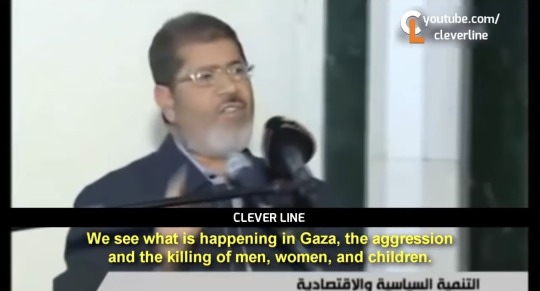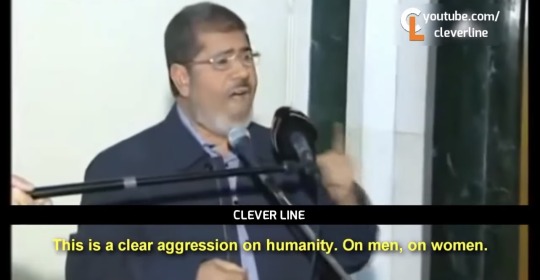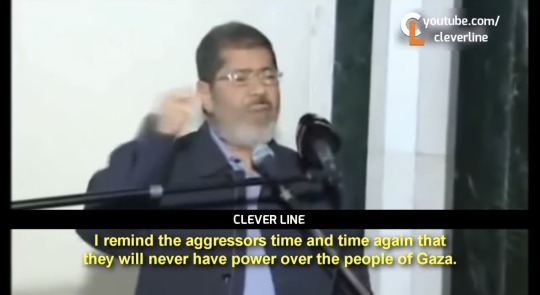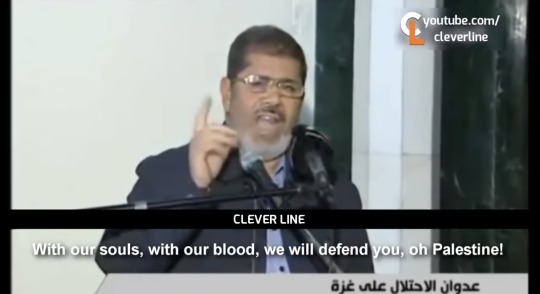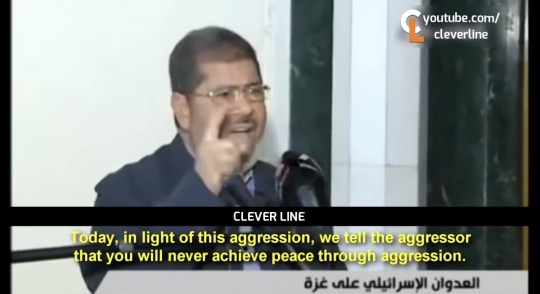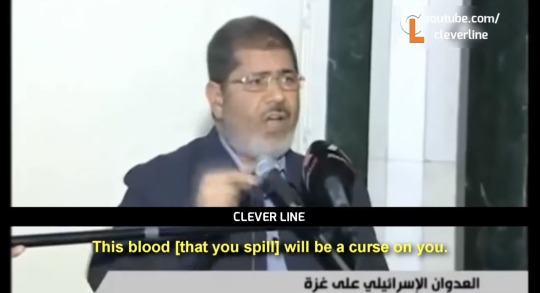#Mohamed Morsi
Text
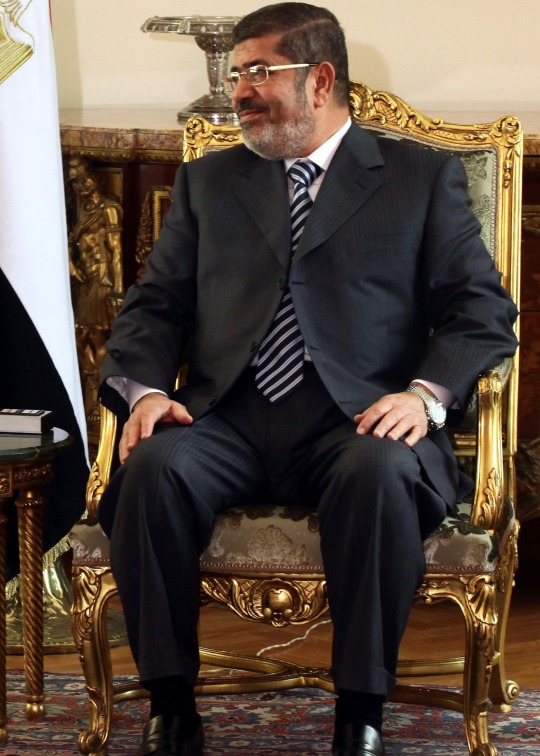
Mohamed Morsi
#suitdaddy#suiteddaddy#suit and tie#suited daddy#daddy#men in suits#silverfox#suitfetish#suit bulge#suited men#suited grandpa#suitedman#suit daddy#suited man#buisness suit#suitedmen#egyptian man#egyptian men#Mohamed Morsi#محمد مرسي
11 notes
·
View notes
Text
Today in History: November 30, birth of Winston Churchill
Today in History: November 30, birth of Winston Churchill
Today in History
Today is Wednesday, Nov. 30, the 334th day of 2022. There are 31 days left in the year.
Today’s Highlight in History:
On Nov. 30, 1782, the United States and Britain signed preliminary peace articles in Paris for ending the Revolutionary War; the Treaty of Paris was signed in September 1783.
On this date:
In 1803, Spain completed the process of ceding Louisiana to France, which…
View On WordPress
#Barbara Bush#Ben Kingsley#Crime#General news#George H.W. Bush#Government and politics#Homicide#kaley cuoco#Law and order#Legal proceedings#Magnus#Michael Beschloss#Mohamed Morsi#Nancy Pelosi#Political resignations#Shootings#Violent crime
0 notes
Text
Israel Says It Should Mediate Peace in Sudan, the Sudanese People Disagree
Israel has offered to mediate the conflict raging in Sudan. This piece at Mondoweiss explains its interest, why Sudan finally and fully joining the Abraham Accords is so important to Israel, and how this whole episode is about sidelining the will of the Sudanese people, both in their fight for democracy and their solidarity with the Palestinians.

View On WordPress
#Abdalla Hamdok#Abdel-Fattah Al-Burhan#Abraham Accords#al-Qaeda#Benjamin Netanyahu#Donald Trump#Hemedti#Hosni Mubarak#Joe Biden#Khartoum#Libya#Mohamed Hamdan Dagalo#Mohammed Morsi#Omar al-Bashir#Osama Bin Laden#Palestinians#Rapid Support Forces#Sudan#Three No&039;s#United Arab Emirates
0 notes
Note
I love your blog and I respect you a lot so please if it possible i want to ask you something. No one seems to care much for the fate of the egyptian protesters who were imprisoned yesterday and many of them were elderly. Egyptians prisons are a living nightmare where even medicine is denied and they live in crowded cells infested with mosquitos. Please we need to do somethimg this is horrifying they may die from lack of medical care and torture when all they did was protest for aid to enter Gaza.
Hi!
I can't find a method of how to help or where to direct people to donate! I assume it's because it's written in another language? I can't even see the page for the Egyptian Organization for Human Rights.
That said, here are some articles I found regarding all this so I can at least help spread some awareness.
Activists shared videos of one of the protesters chanting against business tycoon and government ally Ibrahim al-Organi, whose companies have been charging Palestinians thousands of dollars to exit Gaza.
The government of President Abdel Fattah el-Sisi has been criticised for failing to challenge Israel's siege on Gaza during the current conflict, and for allowing state-linked companies to profit from the movement of people and aid via the Rafah crossing.
The Rafah crossing in northeast Egypt is the only gateway for Gaza that is not directly controlled by Israel. But since 7 October it has opened only intermittently. Egypt blames Israel for the closure of the crossing, as Israel has imposed strict checks on all trucks entering Gaza via Rafah.
Following the protest, 10 activists were arrested at their homes and detained for 15 days on charges of spreading false information and joining a terrorist group, often a reference to the banned Muslim Brotherhood. Egypt declared the Brotherhood a terrorist organization in 2013, following the removal of President Mohammed Morsi from power. Since then, the government has cracked down on political dissent and banned protests, leading to the arrest of critics and activists who speak out against government policies.
During that trip, towards the prison near the Egyptian-Libyan border, detainees were scared and tired. Some of them had to urinate inside the car, using plastic bottles they had, after they were denied access to bathrooms.
He told MEMO: “One of us had diarrhoea and had to use the bathroom. We surrounded him with a curtain made up of our clothes so he wouldn’t get exposed. He had to defecate in the car, cleaned himself with some water he had and collected the faeces in a plastic bag. He was in so much pain: the pain in his stomach and the pain of injustice and oppression.”
About an hour after sunset, the deportation car arrived, carrying ten detainees of different ages. They took sips of water and ate some dates, before beginning a second journey into one of the country’s most infamous prisons.
Officials in this prison, named Al-Manfa, or the exile, are known to “honour” new detainees by torturing, abusing, beating and insulting them upon their arrival. The prison has 216 cells and the abuse is often directed at opponents of Al-Sisi.
And of course, if anyone knows more direct ways of helping such as where to donate or about calls to action or solidarity requests being made by those in Egypt then I think anon and I would really appreciate it!!
#egypt#current events#news#asked#answered#this is awful omg#free palestine#rafah#Egyptian prisons#human rights#abolish prisons#leftist#capitalism#palestine
57 notes
·
View notes
Note
hey could I ask where I could learn more about the arab spring? I can’t find many resources and most of them are very American. I’m asking partially because my parents mentioned a massacre that happened at a mosque around that time, but I can’t find much of that? They used to study in Egypt which is why they were horrified to hear about the brutality those years ago. Sorry if this sounds disrespectful you can ignore it if so. I just want to better understand the unrest in Egypt that I assume is still ongoing today with Sisi
hi sweetheart <3 this isn't disrespectful at all don't worry
unfortunately i don't really have any specific resources i can point you towards that aren't riddled with usamerican propaganda or leave out key details but i remember reading this article from a while back and it was pretty succinct. read it with a discerning eye and lmk if you have any further questions about the points they raised
the massacre your parents are referencing is probably the Rabaa massacre which happened in august of 2013, the biggest massacre in modern egyptian history. military and police forces killed an estimated 1000 protestors, most of whom were supporters of the muslim brotherhood, some others were simply opposed to the military regaining power.
the main key points you need to understand about egypt's modern history, contemporary history, and the arab spring as a whole, are the following:
egypt had been effectively ruled by a military ruling class since the 50's. nasser's presidency oversaw anti-imperialist policies and policies favoring the working class, but he basically laid out groundwork for 70+ years of military dictatorship
anwar al saddat's presidency involved lots of dramatic changes to our domestic and foreign policies, namely privatization of many sectors, introducing neoliberalism to the country, signing the camp david agreements with israel
mubarak's presidency was essentially a 30 years long continuation of sadat's neoliberalism and corruption, things got worse by the day for your average working class egyptian
the 2011 25th of january revolution in egypt was sparked due to worsening living conditions, and protests igniting many of the neighboring countries. namely tunisia, where street vendor mohammed bouazizi self immolated in protest of harassment he had been receiving from government officials.
it's important to note here that even before the protests in tunisia, there had been dissent from the egyptian working class, many factory workers went on strikes in protest such as in mahalla
the 2011 revolution was not ideologically coherent, in the sense that everyone, from all different political ideologies joined in, from the Muslim brotherhood to leftist coalitions. this will be important for understanding why it fell short of achieving long term goals. it managed to force hosni mubarak to step down
the MB's candidate, mohammed morsi won the 2012 elections, which sparked a lot of upheaval from leftists, liberals and religious minorities such as copts.
in june of 2013, mass protests broke out against his regime demanding that he step down from power, the us-backed military hijacked the protests and enacted a coup which reinstalled the military regime with sisi as president. protestors of the new regime, whether in support of morsi or not, were massacred in Rabaa and other locations leaving an estimated 1000 protestors dead
it's important to note here that it was later revealed that certain groups which were involved in the 2013 counter-revolution were funded and backed by gulf states (mainly the UAE iirc, i need to fact check that though). there was a marked increase in organized violence from these groups (tamarod was one of them) out of nowhere and it all played out in the military's favor in the end, which isn't a coincidence considering who are their biggest allies in the region. i don't think this was covered in the article above
there has been unprecedented efforts of censorship in the country since then, a complete crackdown on dissent. journalists get jailed for tweeting things opposed to the regime all the time. egyptian prisons (which aren't exactly known to be the most humane) are filled with political prisoners. this current regime is the one the US and their gulf allies backed and endorsed, we get billions of dollars in military aid from the US in exchange for carrying out their imperialist interests in the middle east. as for living conditions, it only gets worse by the day for your average egyptian. most major cities are riddled with slums, inflation is through the roof, unemployment is high, most people can barely afford basic necessities, our infrastructure is in desperate need of maintenance and renovations, our economy is almost entirely financed by the US (even putting military aid aside), the UAE, and saudi arabia. and we're drowning in debt. we take imf loans like, every other month lmfao it's bad
a lot happened within the span of 3 years, this is all not to say that the MB were good, not in the slightest. but the US once again interfering with a foreign country's domestic affairs to secure their interests has resulted in nothing but devastation for the overwhelming majority of the people living here.
as for the arab spring as a whole, i think it's disingenuous when people dismiss its entirety as western backed conflict. even though a lot of it is exactly that (see: libya), especially in countries where the revolutions kind of bled into them rather than already having brewing tensions from working class people suffering worsening conditions. in tunisia and egypt, there was already a lot unrest within their populations over material conditions, which is why i mentioned the mahalla strikes. it's a shame our revolution didn't have more coherent, stronger socialist organizers, it's a shame it was killed and hijacked before we ever got to reap its benefits
#egypt#inbox#phd in yappology over here jesus christ😭#this is as concise as i can summarize everything but do lmk if you have any questions about certain details!#25jan
41 notes
·
View notes
Text
Egyptian President Abdel Fattah el-Sisi is expected to secure his third term in power in a Sunday presidential election that critics have called a sham, as global attention is focused on the bloody war in neighboring Gaza.
The 69-year-old president has enjoyed two months of a pause in criticism from Western allies over his authoritarian rule and heightened crackdown on dissent, experts say, attributing the shift to Sisi’s renewed diplomatic relevance on the international stage due to the Israel-Hamas war.
Several top Western officials have paid Sisi visits since the war began, including United States Secretary of State Antony Blinken, European Commission President Ursula von der Leyen, United Kingdom Prime Minister Rishi Sunak and German Chancellor Olaf Scholz.
H.A. Hellyer, nonresident scholar at the Carnegie Endowment for International Peace in London, said that Cairo has historically been “a critical interlocutor for the international community in general when it comes to the Arab-Israeli conflict.”
“As the Israeli-Palestinian question diminished in importance in many policy arenas, which was clearly a fundamentally flawed approach, so did Cairo’s geopolitical weight,” Hellyer told CNN, adding that with the Palestinian issue now prominently back in discussions, “there is a new prioritization internationally for good and comprehensive contact with Egypt.”
Egypt controls the Rafah crossing, the sole remaining link between the Gaza Strip – which Hamas controls – and the outside world. Egyptian officials have played mediation roles in previous wars between Israel and Hamas, as Cairo maintains diplomatic ties with both sides. During the current conflict, Egypt’s good offices have been used to deliver crucial aid into Gaza and to help secure the release of some of the hostages held there by Hamas since its militants attacked Israel on October 7, killing 1,200 people and abducting more than 240 others.
Egypt has also helped foreign nationals escape the carnage in Gaza, along with injured Palestinians. More than 17,000 Palestinians have so far been killed in Gaza, according to the Palestinian Ministry of Health in Ramallah, which cites sources from the Hamas-controlled enclave. Aid has also been able to trickle into Gaza through Rafah.
Meanwhile, Sisi is moving to quietly secure another presidential term with little to no opposition at home or abroad, critics say.
“There are no elections. There is electoral theater,” Timothy Kaldas, deputy director of the Tahrir Institute for Middle East Policy in Washington, DC, told CNN, citing the lack of viable opposition to Sisi.
The former field marshal rose to power in 2013 after overthrowing Mohamed Morsy, Egypt’s only democratically elected president, in a military coup. Sisi ran for president in 2014 and 2018, winning both elections with a sweeping majority. In 2019, his government passed constitutional amendments that permitted him to run for a third term.
“The terrible violence we’re witnessing (in Gaza) helped Sisi divide the attention of the public from their domestic concerns onto what’s happening, particularly the Palestinians in Gaza,” Kaldas said. “And as a result, somewhat reduce the level of focus on their own domestic plight, particularly their economic struggles.”
Egypt has also spent the past two months reminding its international partners of how “vitally important” it is, Kaldas said. Egypt can say: “See the useful role we play in negotiations and facilitation of the humanitarian assistance that needs to go to Gaza,” he added.
Sisi has appeared keen to capitalize on the crisis and present himself as a champion of the Palestinian cause. In a speech last month, the president repeated his call for a ceasefire, as well as his refusal of the “displacement of Palestinians from the Gaza Strip,” calling such a prospect a red line.
While diplomats have been focused on Gaza, critics and human rights groups have lambasted Egypt over the past two months for what they say is its suppression of political dissent and silencing of opposition candidates.
Former lawmaker Ahmed el-Tantawy, who was the most prominent potential challenger to Sisi before he ended his campaign in October, said his supporters were restricted from registering their endorsements for him. He ended his campaign after failing to register the number of signatures required to run.
The Egyptian National Elections Authority (NEA) denied el-Tantawy’s claims, according to state media.
Three other candidates are running for president, with little support expected for each. These are the head of the Egyptian Social Democratic Party, Farid Zahran; Wafd party nominee Abdel Sanad Yamama; and Republican Peoples’ Party candidate Hazem Omar.
Rights watchdog Amnesty International said last month that “genuine opposition candidates (were) barred from running” in Sunday’s election, adding that since October 1, Egyptian authorities “have arrested and interrogated at least 196 individuals due to their participation in unauthorized protests, as well as on allegations of engaging in terrorism-related activities and spreading ‘false news.’”
Amnesty also criticized Egypt’s prosecution of el-Tantawy, along with members of his campaign, which the rights group says are under fire “in retaliation for exercising their rights to political participation and to freedom of expression and association.”
El-Tantawy is accused of circulating election-related papers without the permission of the authorities. His trial date was pushed to January 9.
“Once more, the Egyptian authorities lay bare their utter intolerance for even the faintest whisper of dissent,” said Philip Luther, Amnesty International’s Research and Advocacy Director for the Middle East and North Africa, as he urged the country to lift “sweeping restrictions on the rights to freedom of expression, association and peaceful assembly.”
The Egyptian government’s foreign press center did not respond to CNN’s request for comment.
‘No one will come out to vote’
Just days before the election, streets in the capital, Cairo, were draped with large banners bearing Sisi’s portrait. An increased security presence is noticeable throughout the city, with officers and checkpoints dotting squares, highways and the entrances to bridges.
Among those boosting the pro-Sisi campaign is the Nation’s Future Party. “We are all with you” and “beloved of millions,” read the party’s pro-Sisi banners.
Despite the president’s high-profile election campaign, public sentiment is marked by frustration. Grievances regarding the economy are most evident.
Magdy Gerges, an Egyptian in his 50s who works as a driver, said economic hardships were painful, but that he feels a sense of security under Sisi’s rule.
“I’m one of those who suffer from the high prices, but this man (Sisi) gives me something more important than food; that I feel safe whenever my daughters go out,” Gerges told CNN. “By the end of the day, we will manage with our income, but what good is money if there is no security?” he said.
Gerges noted however that there are no other viable alternative candidates for voters to choose from, especially given the region’s precarious security situation.
“Even if we want to choose someone else, we have no alternative,” he said.
Another citizen, who asked to remain anonymous fearing reprisal from Egyptian authorities, questioned the legitimacy of Sunday’s election, saying polling stations will be empty since Sisi’s victory is clear.
“No one will come out to vote. People know the result in advance, so why this farce?” the man told CNN, saying it might have been better to “save these huge sums of money in the difficult economic conditions we are living in.”
Hellyer, of the Carnegie Endowment, said that with the current crisis in Gaza, Cairo might even see “potential for substantial economic assistance” from foreign nations, given the role it has played.
Egypt has been struggling to dig itself out of a debt hole that experts say requires structural reforms to avert economic collapse. Cairo’s allies in the Persian Gulf, who for years bailed out the most populous Arab nation, had in recent months criticized Egypt, saying the days of blank cheques are now over.
Egypt’s economic woes are far from resolved. Inflation is still high, and a foreign currency crisis remains unremedied. The country is also yet to meet the terms of the International Monetary Fund (IMF) for a $3 billion loan secured in December 2022 but which is yet to be disbursed.
Kaldas, of the Tahrir Institute, said that the Egyptian pound is expected to devalue further. The dollar now trades officially at 31 Egyptian pounds, and if the government decides to further devalue the exchange rate after the elections, that will translate to higher inflation, a deepening of economic hardship for individuals and businesses, and a rise in poverty, he said.
“There is no short-term scenario that doesn’t mean more economic pain for the average Egyptian,” Kaldas added.
The election takes place from December 10 to December 12. Results are expected by December 18.
15 notes
·
View notes
Text
Shiva is not only Gaza’s largest hospital but also the most equipped. The article points out that Israel is claiming that Hamas is using the hospital and its residents for military purposes with no visual evidence that Hamas is in fact occupying the hospital. The existence of the advanced system of tunnels and command center below the hospital is also denied by Gaza health officials and Hamas. There are also reports of the IDF firing at patients and staff attempting to leave the hospital after the Israeli Government said they would allow them to evacuate.
This conflict is difficult to understand due to the lack of credibility in reports. Hamas has every incentive to lie about what is occurring in Gaza. Hamas has a history of using human shields and launching missiles from schools and hospitals. Thus, Hamas occupying Shiva Hospital is not an absurd notion and I do not think Israel would waste resources, especially to attack a hospital if they did not think Hamas was actually in there.
We know there is a history of their use of the tunnel system. Additionally, we know that it is even being used for military purposes because of the relationship between Hamas and Egypt. Under the former Egyptian President, Mohamed Morsi, Egypt allowed Hamas to use the tunnel system. It is believed Hamas is still using the tunnel system because that is how they smuggled in a lot of their resources.
3 notes
·
View notes
Note
Dude you know Mohamed Morsi taught at my friends alma mater, way before they were students there but he was in the engineering department which half the faculty are also Muslim and Middle Eastern and some of the professors had known him during his time there. They covered it in the school press, said he was def religiously conservative but other than that just a normal professor type, nerdish and very into science, people were so shocked by what happened with him and this large LA public college having a connection to major Egyptian political unrest lol.
lol I mean it’s a big leap from “this nerdy sciency dude prays every day” to “this guy is coming to power amidst a revolution and oh no he’s being overthrown again”. Must’ve been a mindfuck for people who had known him in his academia days.
0 notes
Text
De leeuwentemmer van Gaza
RAFAH – De Gazastrook zit potdicht, afgesloten door Israël en Egypte en met harde hand geregeerd door Hamas. In die ellende brengt een uitgerangeerde brandweerman twee leeuwen groot.
Gepubliceerd in Vrij Nederland, september 2015.
All photo's by Thomas Schlijper
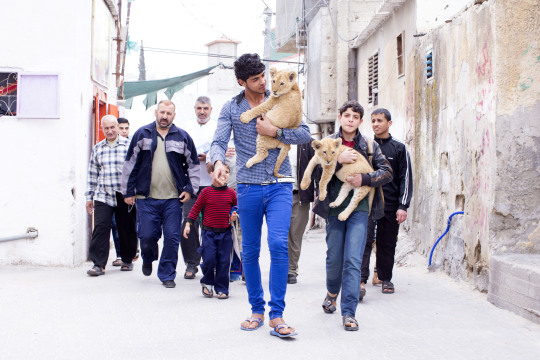
In de huiskamer van Sa’ad Adin Al-Jamin (54) in de stad Rafah in het zuiden van de Gazastrook wordt op de deur geklopt. Buiten klinken opgewonden kinderstemmetjes. Een man met een grote snor en een morsig colbert, een van de inwonende broers van Al-Jamin, opent de deur op een kier en houdt een wijsvinger voor zijn mond. Stil zijn, gebaart hij tegen de kinderen. Twee jongetjes in schooluniform komen glippen naar binnen en kijken met grote ogen naar de attractie in de huiskamer. Max and Moena, twee welpjes van drie maanden oud, liggen vredig op de bank te slapen. Een plastic bak met een laag bloed op de bodem herinnert aan de maaltijd die ze zojuist hebben gegeten. ,,Heel Gaza staat bij mij voor de deur om naar Max en Moena te kijken,” zegt Al-Jamin. Hij glundert van trots en steekt een sigaret op, de derde in tien minuten. ,,Ik moet vaak mensen wegsturen omdat het te druk voor ze wordt.”
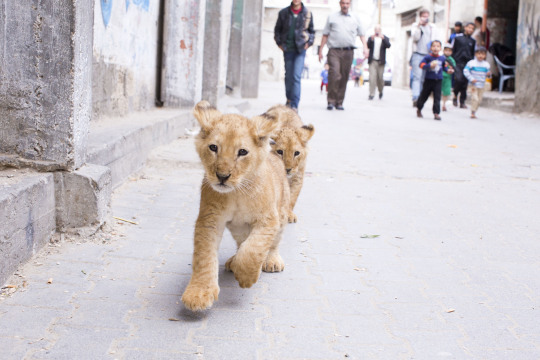
De drie maanden oude welpjes in zijn huis zijn uitgegroeid tot lokale legendes, symbolen voor de afsluiting én de veerkracht van Gaza. Max en Moena werden geboren in de kleine dierentuin van Rafah uit ouders die jaren geleden door ondergrondse tunnels uit Egypte werden gesmokkeld. Drie keer al was de moeder van Max en Moena in Gaza zwanger,telkens stierven haar kinderen kort na de geboorte door oorlog, stress of slechte zorg. Terwijl de ouders op leeftijd raakten en de hoop op nieuwe leeuwen slonk, werd in buurland Egypte de regerende Moslimbroederpartij van Mohammed Morsi afgezet middels een gewelddadige coup. De nieuwe president, legergeneraal Sisi, vervolgt de Moslimsbroeders en andere politieke tegenstanders sindsdien meedogenloos. Morsi zit in de cel en werd in mei ter dood veroordeeld op beschuldiging van verantwoordelijkheid voor gewelddadige rellen waarbij Egyptische politieagenten omkwamen.
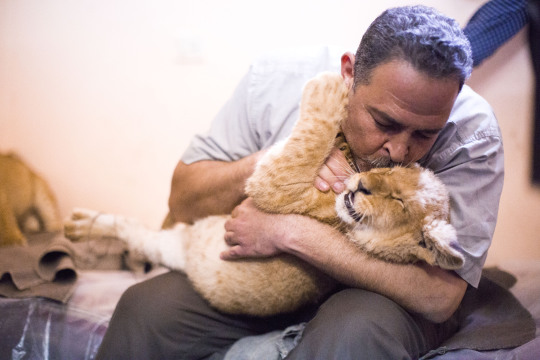
Het politieke tumult in buurland Egypte heeft grote gevolgen voor Gaza. Hamas, de islamistische Palestijnse beweging die de kuststrook sinds 2007 met harde hand bestuurt, is ideologisch verwant aan de Moslimsbroeders en onderhield goede banden met Morsi. Tot zijn val liet Egypte de ondergrondse smokkeleconomie min of meer ongemoeid. De naar schatting 1200 ondergrondse tunnels vormden Gaza’s voornaamste levenslijn voor goederen, en belastingen op de smokkelwaar waren de belangrijkste inkomensbron van Hamas. Sommige tunnels waren zo groot en geavanceerd dat er vrachtwagens doorheen konden rijden. Gazanen gingen geregeld op de thee bij familie aan de Egyptische kant van de grens, om diezelfde dag weer door een tunnel terug te keren. En er liepen leeuwen door, zoals de ouders van Moena en Max.
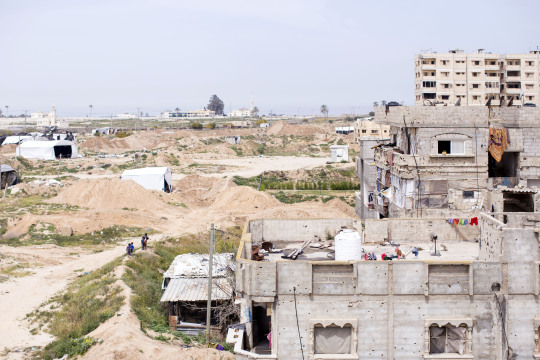
Maar na zijn coup draaide Sisi Hamas direct de duimschroeven aan. Hij beschuldigde de beweging van terroristische aanslagen op het Egyptische leger in de Sinaï-woestijn. De tunnels naar Gaza werden onder water gezet of met explosieven vernietigd. Een kat-en-muis-spel volgde waarbij Hamas langere, lager gelegen tunnels groef die dieper in Egypte uitkwamen om aan detectie te ontkomen. Uiteindelijk besloot het Egyptische leger tot een rigoureuze oplossing. De woonbuurten die het dichtst bij de grens met de Gazastrook lagen en waar veel tunnels uitkwamen, werden met de grond gelijk gemaakt. Bewoners moesten evacueren. De nekslag voor de ondergrondse smokkeleconomie kwam tijdens de vijftig dagen durende oorlog tussen Israël en Hamas in de zomer van 2014. Het Israëlische leger (IDF) constateerde dat Hamas wapens, strijders en cement door de tunnels smokkelde en bombardeerde het grensgebied uit de lucht. Vanaf een huis aan de rand van Rafah met uitzicht op de grens met Egypte zijn de verwoestingen nog altijd te zien. Een desolaat woestijnlandschap wordt slechts onderbroken door tientallen uitstulpingen die zijn afgedekt met wit plastic. ,,Dat zijn de ingangen van dichtgegooide tunnels,” zegt Abdallah Abu Ermana (34) op het dak van zijn huis aan de rand van Rafah. ,,Vroeger werkten ik met mijn broers dag en nacht in de tunnels. Nu zijn ze dicht en zitten we werkloos thuis.”
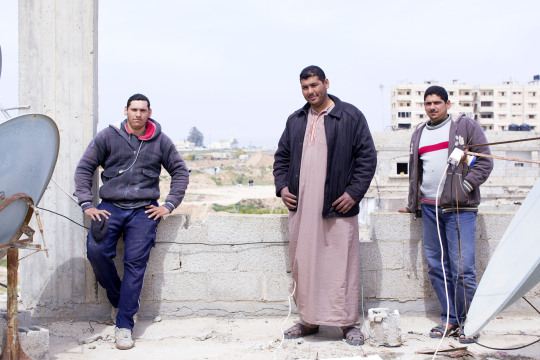
Tijdens een inspectie van een afgedekte tunnelingang op zo’n tweehonderd meter met de grens van Egypte wordt duidelijk waar hij op doelt. Al snel komt een bebaarde man van middelbare leeftijd op een ouderwetse motor aangereden. ,,Wegwezen hier, het is gevaarlijk,” zegt hij, zonder zich te identificeren. Vrijwel gelijktijdig komen drie jonge mannen aangelopen. Een van hen draagt een ouderwets machinegeweer losjes aan een schouderband. Ze maken een nerveuze indruk. ,,Als mensen te dicht bij de grens komen openen de Egyptische soldaten direct het vuur, zonder iets te vragen,” zegt een van hen.
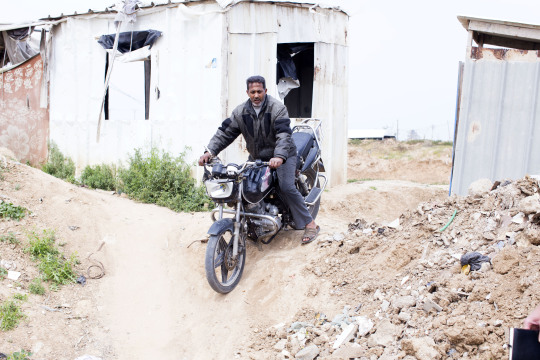
De vijandigheid van het nieuwe Egyptische regime en de sluiting van de tunnels betekende de economische doodsteek voor Rafah, een stad van zo’n 45.000 inwoners die grotendeels leven van de smokkel. In het centrum van de stad hangen winkeliers verveeld kettingrokend op de stoep. Bijna de helft van de zaken in de winkelstraat zijn dicht, in de rest komen nauwelijks klanten. De winkeliers moeten nu leven van de verkoop van goederen die dagelijks met vrachtwagens via Israël worden ingevoerd. Maar die zijn veel duurder dan de smokkelwaar uit Egypte. Met een werkloosheidscijfer dat al jaren schommelt tussen de 40 en 60% kunnen maar weinig Gazanen zich deze prijzen veroorloven. Een jaar na de oorlog met Israël leven veel inwoners van Rafah nog altijd van voedselbonnen die door hulporganisaties van de Verenigde Naties worden verstrekt.
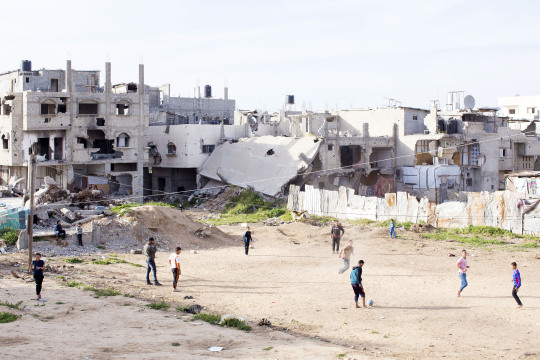
Voor leeuwentemmer Al-Jamin pakte de tunnelsituatie gunstig uit. Door de economische depressie en teruglopende bezoekersaantallen moest de directeur van de kleine dierentuin in Rafah Moena en Max met pijn in het hart verkopen. Hij had alleen nog geld om hun ouders te verzorgen. Verschillende vooraanstaande families uit heel Gaza boden tegen elkaar op. Zulke statusverhogende huisdieren wilde iedereen wel hebben. Uiteindelijk won Al-Jamin door 8.500 Amerikaanse dollars voor de welpjes te betalen, het equivalent van drie gemiddelde jaarsalarissen in Gaza. ,,En dat is nog niet alles,” zegt hij. ,,Iedere dag koop ik voor 30 sjekel (ongeveer € 7, red.) melk en vlees voor ze. Er gaat ook heel wat speelgoed doorheen, want ze eten bijna al hun knuffels op.”
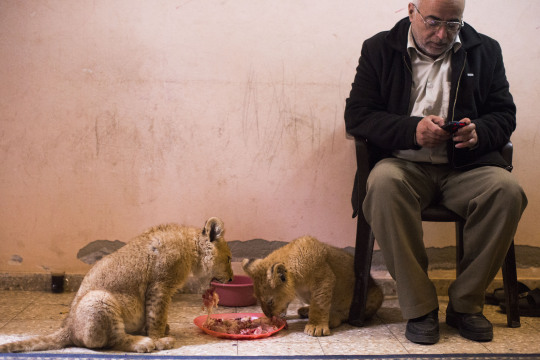
Naast Moena en Max onderhoudt Al-Jamin een gezin van zes kinderen. Vier zonen en dochters wonen nog thuis. Zij slapen in afgesloten vertrekken waar de leeuwen niet mogen komen. Twee volwassen dochters zijn getrouwd en wonen in bij de familie van hun echtgenoot, zoals gebruikelijk in de conservatieve Gazaanse maatschappij. Van origine is Al-Jamin brandweerman, maar hij werkt al jaren niet meer. Toch krijgt hij zijn salaris doorbetaald, net als duizenden anderen uitgerangeerde Gazaanse ambtenaren. Dat zit als volgt. In 2007, twee jaar nadat het Israël leger zich terugtrok en de joodse nederzettingen in Gaza ontruimde, nam Hamas met veel geweld de macht over van de Palestijnse Autoriteit. Tientallen leden van de aan de Palestijnse Autoriteit gelieerde Fatah-partij werden standrechtelijk geëxecuteerd en van gebouwen gegooid, anderen vluchtten naar de Westelijke Jordaanoever. Het ambtenarenapparaat werd gezuiverd. Brandweermannen zoals Al-Jamin die lid zijn van Fatah werden vervangen door Hamas-loyalisten. Om de totale ineenstorting van de economie en een mogelijke burgeroorlog te voorkomen, werd besloten de salarissen van het ambtenarenapparaat van de Palestijnse Autoriteit in Gaza door te blijven betalen. Deze situatie duurt nu al acht jaar. De Europese Unie is de grootste geldschieter van dit disfunctionele ambtenarenapparaat.
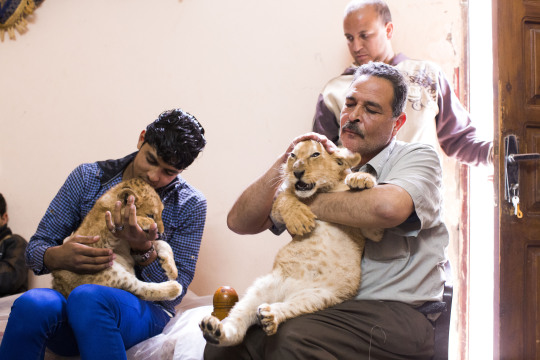
Al-Jamin haalt zijn schouders op. ,,Tijdens de oorlog bombardeerde Israëlische vliegtuigen deze buurt. Het winkelcentrum om de hoek stond dagenlang in brand, maar ik mocht van Hamas niet helpen bij het blussen. Het complex ging geheel verloren. Laatst kwamen Hamas-mannen de veiligheid van mijn situatie met Moena en Max inspecteren. Ik heb er niets meer over gehoord. We negeren elkaar eigenlijk, Hamas en ik.”
Schizofreen
De schizofrene politieke situatie waarin Fatah-ambtenaren zoals Al-Jamin zich bevinden loopt als een rode draad door de Gazastrook. Ondanks verschillende toenaderingspogingen lukt het Hamas en Fatah niet een stabiele eenheidsregering te vormen die de geografisch gescheiden Palestijnse Gebieden kan besturen en vredesonderhandelingen met Israël kan voeren, mochten die weer beginnen. De aanhoudende Palestijnse verdeeldheid resulteert in een wonderlijke grensprocedure voor de weinige buitenlanders die in Gaza worden toegelaten. Na de zwaarbewaakte, ommuurde grensovergang met Israël volgt eerst een lange voettocht door een stalen kooi die leidt naar een checkpoint van de Palestijnse Autoriteit. Daar krijgen bezoekers een verblijfsvisum voor een aantal dagen. Vanaf het checkpoint van de Palestijnse Autoriteit verdeelt de plaatselijke taximaffia ritjes naar het Hamas-checkpoint een paar honderd meter verderop waar opnieuw controle en een visum volgt. Hamas en Fatah coördineren in de praktijk wel met elkaar, maar laten voor het oog van de camera’s geen kans onbenut om elkaar zwart te maken, zoals een echtpaar dat in scheiding ligt.
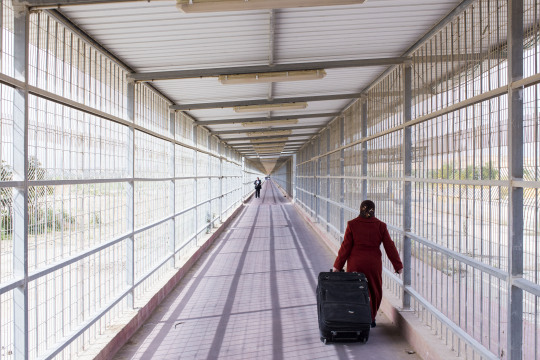
Ook Israël doet mee aan deze ingewikkelde politieke dans. Hoewel de Israëlische premier Benjamin Netanyahu tijdens de recente oorlog met Hamas continu verwees naar het politieke manifest van de beweging, waarin staat dat Hamas ‘heel Palestina zal bevrijden’ en Israël zal vernietigen, deed zijn leger geen poging Hamas van de troon te stoten ten gunste van een meer gematigd regime. Net als de Palestijnse Autoriteit lijkt Israël zich voorlopig neer te leggen bij de ijzeren grip van Hamas op de Gazastrook, al zullen de politiek leiders dit nooit met zoveel woorden zeggen. Het leidt tot een omslachtige manier van communiceren waarbij misverstanden snel tot oorlog kunnen leiden. Zo kwamen de raketten die de afgelopen maanden incidenteel vanuit Gaza op Israël werden afgeschoten niet van Hamas, maar van rivaliserende kleinere milities in Gaza. Hamas probeert deze beschietingen juist te voorkomen uit angst voor Israëlische represailles.
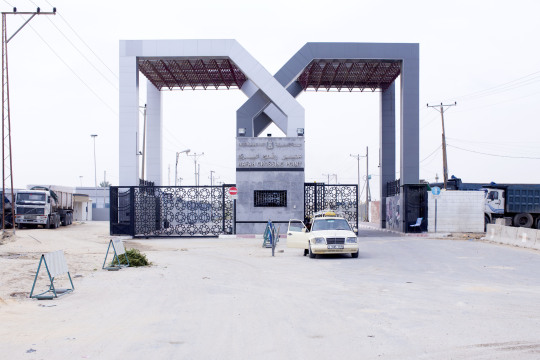
Die angst is niet ongegrond. Israël weet ook dat verschillende milities de raketten afvuren, maar reageert standaard met bombardementen op faciliteiten van Hamas. ,,Wij houden Hamas verantwoordelijk voor alles wat er in Gaza gebeurt,”zegt majoor Ariye Salicer, een woordvoerder van de IDF. ,,Hamas is verreweg de sterkste militie in Gaza en heeft de macht stevig in handen. Daarna komt de Islamitische Jihad met zo’n 10.000 strijders. Volgens onze informatie zijn er nog zo’n vijftien kleinere, radicalere organisaties actief zoals Islamitische Staat, die de macht in Gaza willen overnemen. Maar Hamas weet goed hoe het met concurrerende bewegingen om moet gaan,” voegt hij er grimmig aan toe.
Boten met straf
Dat Hamas in de ogen van rivaliserende milities te soft tegen Israël is geworden, voedt de hardnekkige geruchten dat Israël en Hamas in het geheim onderhandelen over een tienjarige wapenstilstand. Egypte zou daarbij als bemiddelaar optreden. Maar de kans op succes lijkt klein. Sinds de machtsovername door generaal Sisi doet de vijandigheid in Gaza jegens Egypte nauwelijks onder voor de haat tegen Israël. Door de vervolging van Hamas en het vernietigen van de smokkeltunnels wordt Egypte niet als onpartijdige bemiddelaar gezien.
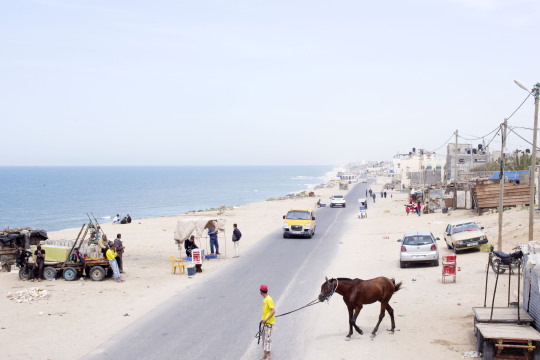
Tijdens een bezoek aan de Israëlische marinebasis in de stad Ashdod op 38 kilometer ten noorden van de Gazastrook, wordt eens te meer duidelijk waar de Gazaanse aantijgingen tegen Egypte op gebaseerd zijn. Vanwege de geografische nabijheid was deze basis tijdens de zomeroorlog die door de IDF ‘Operatie Beschermende Ring’ wordt genoemd, het epicentrum van de marineactiviteiten voor de Gazaanse kust. Israëlische oorlogsschepen vuurden raketten af en sleepten ‘verdachte boten’ weg naar Ashdod. In vredestijd patrouilleren twee Israëlische marineschepen 24 uur per dag langs de grenzen van de viszone, een rechthoekig gebied dat de landgrenzen volgt en een paar kilometer de zee in reikt. Hier mogen Gazanen vissen, erbuiten varen is ten strengste verboden. De IDF heeft enkele buitenlandse journalisten uitgenodigd op de basis om aandacht te vragen voor een heugelijke gebeurtenis. Twintig Gazaanse visserboten die het afgelopen jaar in beslag werden genomen wegens het negeren van Israëlische bevelen worden deze maand opgeknapt en teruggegeven aan hun eigenaren. Op de basis mag niet worden gefotografeerd worden; de aanwezige commandanten moeten anoniem blijven. Tijdens het bezoek was continu een Israëlische communicatieofficier aanwezig die Nederlands spreekt.
,,Wij zijn heel bezorgd om de smokkel uit Egypte. Daarom patrouilleren onze schepen ook langs de zeegrens tussen Gaza en Egypte, en niet alleen aan onze kant,” zegt E., de hoogste officier van de basis. Aan boord van een van de patrouilleboten laat een Israëlische kapitein het radar zien. Op het scherm bewegen rode en blauwe stipjes langs de grenzen van de viszone vrijelijk door elkaar heen, terwijl over de radio schunnige grappen in het Hebreeuws worden gemaakt. ,,Wij zijn blauw, Egypte is rood. We werken uitstekend samen, want ook zij zijn bezorgd om de smokkel met Gaza. De gele vlekjes in onze buurt zijn Gazaanse vissers. Ze komen altijd dicht bij ons de buurt. Wij zijn bang dat er zelfmoordterroristen aan boord zijn. Als ze niet weggaan krijgen ze daarom een schot voor de boeg of nemen we de boten in beslag.” Op de kade van de basis liggen twintig vaalgele platte vissersboten van tien meter lang. Op de plek waar de motor hoort te zitten is het staal doorboord met tientallen kogelgaten. ,,Waarschuwingsschoten,” zegt de kapitein. ,,Deze boten hebben straf. Maar volgende maand willen we ze teruggeven als gebaar van goede wil.”

Max en Moena zijn ondertussen wakker geworden. Ze spelen met een stoffen leeuw die bijna niet van de echte dieren is te onderscheiden. Een van Al-Jamins zoon pakt Moena op en laat haar met haar nagels door zijn nagels krioelen. De schoolkinderen schateren het uit in een mix van angst en fascinatie. ,,Ongevaarlijk,” zegt Al-Jamin. ,,Alleen voor de tanden moet je nu al echt uitkijken.”
Hij zwijgt even en pakt een nieuwe sigaret uit het borstzakje van zijn colbert. ,,Ik houd gewoon van die leeuwen. Als ik zie hoe de kinderen met ze spelen word ik gelukkig. Ik zie dat het helpt."
0 notes
Link
0 notes
Text
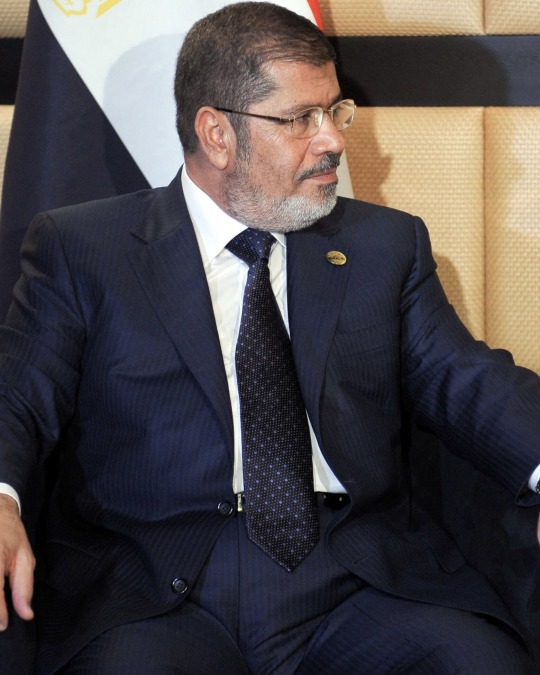
Mohamed Morsi
#suitdaddy#suiteddaddy#suit and tie#suited daddy#daddy#men in suits#suited grandpa#suited men#suited man#suitedman#suit daddy#buisness suit#suit bulge#egyptian men#Egyptian man#Mohamed Morsi#Suitfetish
14 notes
·
View notes
Text
Today in History: November 25, Fidel Castro dies at 90
Today in History: November 25, Fidel Castro dies at 90
Today in History
Today is Friday, Nov. 25, the 329th day of 2022. There are 36 days left in the year.
Today’s Highlight in History:
On Nov. 25, 2016, Fidel Castro, who led his rebels to victorious revolution in 1959, embraced Soviet-style communism and defied the power of 10 U.S. presidents during his half-century of rule in Cuba, died at age 90.
On this date:
In 1783, the British evacuated New…
View On WordPress
#Amy Grant#Barbara Bush#Ben Stein#Bruno Tonioli#Fidel Castro#Football#General news#George W. Bush#Jamie Grace#Jenna Hager#John Larroquette#Katie Cassidy#Mohamed Morsi#NFL football#Professional football#Psy#Sports#Tom Ridge#William Joseph
0 notes
Text
Maroc : les Amazighs à la recherche d'une présence civique par le biais des droits linguistiques
Le parcours des Amazighs après la reconnaissance de leurs droits linguistiques
« Amazigh » illustré en langue amazighe, avec pour toile de fond le Parlement marocain. Créé par Noran Morsi pour Global Voices.
Écrit par جلوبال فويسز – traduit (en) par Honey Hashem, Mariam A., Daniel Frédéric Ngono
Enfant, Mohammed Ait Amghar, un commerçant de la région d’Azilal au Maroc, ne parlait que sa langue…
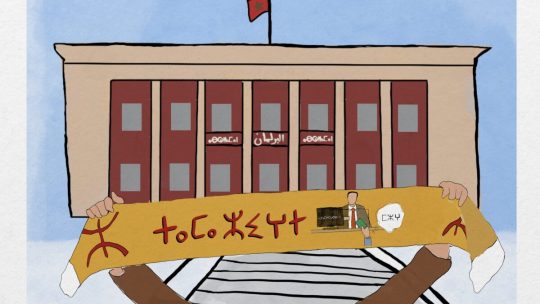
View On WordPress
#Bibliotecas#Dicionarios#Direitos#Français#Identité#Idiomas originarios#Igualtat#Informació#Liberté#Meios#Normas e leis#Ortografia#Patrimonio#Procédures#Sociedade
0 notes
Note
can you provide a source for the point about tamarod? i've never heard of anything about collaboration with the UAE before
i don't remember if the leaked audios were ever confirmed but i don't really have any reason to believe they're not real, or that the state wasn't involved all things considered. the increase in organized violence out of nowhere, the military just stepping back and watching as "activists" protest, all of it working out in their favor in the end, there's no way they weren't involved too.
https://www.washingtonpost.com/news/monkey-cage/wp/2017/07/03/how-egypts-generals-used-street-protests-to-stage-a-coup/
this article goes more in depth analyzing the spike in organized violence prior to the june 30th counter-revolution
8 notes
·
View notes
Text
Throughout much of the summer of 2013, Egypt was in the grips of what could be described as “Sisi-mania.” Songs, sandwiches, music videos, poems, and even pajamas paid tribute to Abdel Fattah al-Sisi, the military officer who’d just overthrown President Mohamed Morsi.
From the outside, it was a bizarre spectacle as millions of Egyptians rejoiced at the military’s ruthless and brutal intervention against the Muslim Brotherhood apparatchik who’d only become president a year before, in June 2012. Even so-called revolutionaries and longtime critics of Egypt’s authoritarian political system seemed to genuinely adore the diminutive military leader who promised them a fresh start after a tumultuous 18 months beginning with the uprising against longtime leader Hosni Mubarak in late January 2011.
With Morsi jailed and members of the Muslim Brotherhood dead, arrested, or on the run, Sisi promised Egyptians better days, though he warned his fellow citizens to be patient. That was wise. Egypt’s complex economic, social, and political problems had only deepened as Egypt lurched from one crisis to another throughout the fraught and short-lived democratic transition. Yet a decade later, Sisi has not rewarded Egyptians for their patience. Quite the opposite: The man who was supposed to have rescued Egypt is now overseeing its ruin.
Sisi promised Egyptians prosperity, but Egypt is flat broke. The statistics are staggering. Inflation is running at almost 37 percent and a single U.S. dollar fetches 30 Egyptian pounds. (It was about 7 pounds to the dollar when Sisi came to power.) The country’s international debt is almost $163 billion, and its overall debt is projected to reach nearly 93 percent of the country’s GDP in 2023. Government officials have been forced to manage Egypt’s finances like a shell game, moving money around in a vain attempt to hide the country’s precarious economic conditions.
Sisi has been making the case that the country’s economic tribulations are the result of issues beyond his control, especially the COVID-19 pandemic and Russia’s invasion of Ukraine. Those crises have no doubt created significant economic challenges that countries—the United States included—have had difficulty managing. Yet Sisi’s protestations are clearly a discursive strategy to downplay his own culpability in the further pauperization of Egypt.
The president has gone on a debt-fueled spending spree on mega-projects for which there are few economic justifications. The mightiest and most obscene of them is the New Administrative Capital, which is just in its first phase and so far has cost over $45 billion. When the United Arab Emirates and China pulled out of the project, Egyptians were forced to foot the bill by adding massive amounts of debt to the country’s balance sheet.
In addition to building a new capital lock, stock, and barrel in the middle of the desert, Sisi is overseeing a bevy of other large projects. Notable among them is a new “summer capital” on the north coast, a nuclear power plant (in a country with excess electricity), a sustainable city in the Nile delta, and the revival of a failed Mubarak-era mega-project in upper Egypt called Toshka. This comes after the opening of a Suez Canal bypass—billed as the “New Suez Canal”—in 2015.
Most of these projects are of dubious economic value but are (or were) politically important. They were meant to be tangible demonstrations of Egypt’s rebirth under the steady hand of its new military officer-turned-president and his colleagues at the Ministry of Defense. The message may have been that Egypt can still do great things, but these mega-projects have become unsustainable economic burdens on the country.
Officials point out that many Egyptians were employed in the construction of these projects. Fair enough—but at what cost? Governments have a responsibility to build infrastructure, but the long-term benefits must outweigh the short-term costs. New bridges, roads, interchanges, airport upgrades, and subways are well worth it—and Egypt has done some of this—because of the return on these projects in terms of greater and more efficient economic activity. The Suez Canal bypass may fit into this category, but the summer capital and the New Administrative Capital are enormous pits of money that Egypt does not have.
It is hard to fathom that within a decade, Sisi—whose patrons in Saudi Arabia and the United Arab Emirates refloated the Egyptian economy with direct cash transfers, who secured International Monetary Fund (IMF) loans on easy terms, and who enjoyed significant goodwill among Western governments—took a poor country and made it poorer.
In its most recent agreement with the IMF, the Egyptian government agreed to sell off state assets, including those that the military owns. Yet there have been few buyers, because these assets are either not worth anything, no one knows how to assign them a value, or potential buyers are sitting on the sidelines waiting for another devaluation of the Egyptian pound (which would be its fourth since March 2022) so they can get whatever quality firms there are at even cheaper prices. Recently, the government announced $1.9 billion in sales of state assets, which is positive but does little to relieve widespread economic suffering. Egyptians rose up in 2011 because they wanted dignity. A fire sale of state-owned assets is hardly dignified.
Rather than continuing to wait for the prosperity their leaders promised, Egyptians are leaving in increasing numbers. Lost in much of the reporting on the sinking of the overloaded fishing boat off the coast of Greece in June was the fact that there may have been 300 to 350 Egyptians aboard. And though the number of Egyptians migrating to Europe by boat increased after the January 2011 uprising, it has risen further in recent years. Through June, more than 6,000 Egyptians have tried to make it to Italy by sea since the start of 2023. They constitute the second largest group of migrants hoping to make it to Italian shores. In 2022, about 22,000 Egyptians sought a better life across the Mediterranean. Of course, it makes sense that larger numbers of Egyptians would be leaving given the dire economic circumstances they confront.
Egypt’s economic travails only reinforce the idea that the country is a spent force. In the 1970s, President Anwar el-Sadat sold U.S. Secretary of State Henry Kissinger a story about how Egypt was an influential player that could help secure regional peace and be the linchpin in an anti-Soviet regional order. Sadat (consistent with both his character and political career) was exaggerating. Egypt is an important U.S. partner. Yet with few exceptions—such as Operation Desert Shield/Desert Storm—it never had the resources to play the role U.S. policymakers had hoped it would when Cairo reoriented its foreign policy toward the United States.
And although Sisi is in the room for important meetings such as the recently concluded Russia-Africa summit in St. Petersburg or last summer’s GCC+3 meeting with U.S. President Joe Biden, it seems the Egyptian leader’s attendance is pro forma. Being in the room confers a certain amount of influence, but Egypt is more an observer at these gatherings than a player.
The most glaring example of Egypt’s descent and concomitant, hollow foreign policy is Cairo’s almost total absence in the civil war in Sudan—the country’s own backyard. In the opening phase of the conflict, Gen. Mohamed Hamdan Dagalo’s Rapid Support Forces held nearly 200 Egyptian soldiers and airmen—who were in Sudan to conduct exercises with the Sudanese army—hostage. They were released relatively quickly with the help of the Emirati diplomats.
After that humiliating episode, the Egyptians have stood on the sidelines and watched the Saudis play an important role evacuating third-country nationals from Sudan. Sisi then ceded any effort to mediate in Sudan to Crown Prince Mohammed bin Salman (with help from Americans). But some in Cairo must be embarrassed that Saudi Arabia has ended up playing the critical role in a conflict where Egypt—according to its own myths—should be leading. Indeed, when Cairo hosted a conference of Sudan’s seven neighbors in mid-July to urge a cease-fire, even that didn’t go well. It was little more than a talkfest and photo-op—and during his remarks at the conclave, Ethiopian leader Abiy Ahmed thanked Saudi Arabia for its mediation efforts.
Recently, an astute Egypt analyst tweeted, “I can honestly say I no longer see a way out from this.” By “this,” I suspect she meant the ruin that Sisi has made of Egypt. A decade or so after Egyptians rose up demanding bread, freedom, and social justice, they have none of those things.
3 notes
·
View notes
